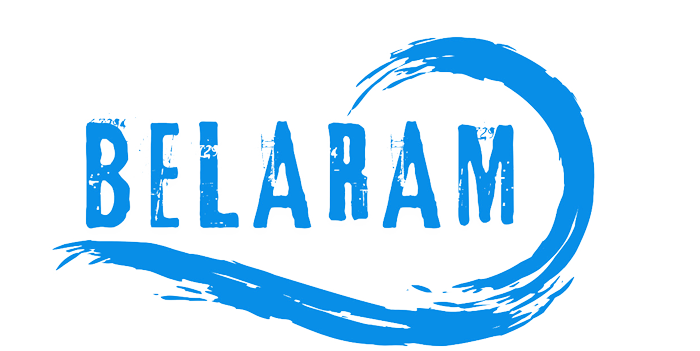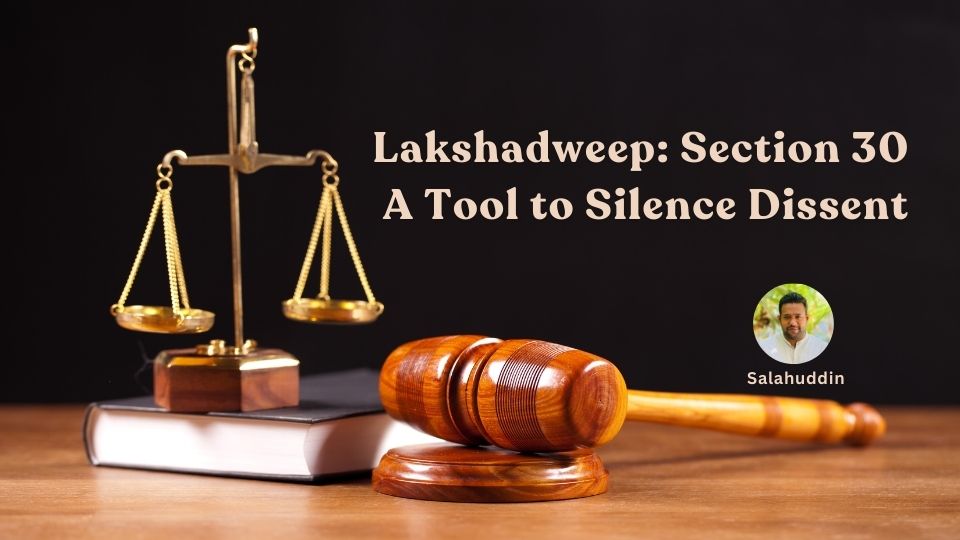In December 2022, Kiltan Island in Lakshadweep witnessed an unsettling event that underscored the administration’s relentless autocratic control over its people. A peaceful protest against the closure of a local school, led by BJP state leaders and then Yuvamorcha president Mahada Hussain, along with a handful of supporters, was met with a heavy-handed police response. The protest was declared illegal due to the absence of prior permission from the Superintendent of Police, Kavaratti, resulting in a court case.
The legal basis for this suppression was the invocation of Section 30 of the Police Act, 1861—an archaic colonial-era law used to silence a fundamental democratic right: the right to peaceful protest.
The Colonial-Era Law Still in Force
Section 30 of the Police Act, 1861 grants the police authority to regulate public gatherings and processions. It allows them to determine the routes, timings, and rules for such events under the pretext of maintaining peace and order. The law mandates prior permission from the Superintendent of Police for any public meetings, processions, or use of loudspeakers—requiring approval at least 48 hours in advance in Lakshadweep.
For decades, the Lakshadweep administration has been enforcing Section 30 in continuous cycles of ninety days, with only negligible breaks in between. During the protest in Kiltan, senior leaders chose to disperse and pay the fine levied against them. However, Mahada Hussain, the youngest among them, refused to comply. Instead, he challenged the misuse of power by taking the matter to court, asserting his fundamental right to peaceful protest.
A Pattern of Suppression
Hussain’s case, filed at the Kerala High Court through Advocate Ajith Anjarekkar, was met with a familiar argument from the Lakshadweep Administration’s senior counsel, Sajith Kumar. He claimed that Section 30 was only in force for ninety days and that since this period had lapsed, the petition held only academic value. Consequently, the court dismissed the petition.
This was not the first such case. In 2009, A. Kunhikoya, a former Chief Councillor of Lakshadweep, faced a similar outcome when he petitioned against the law’s implementation. This recurring legal battle reveals a disturbing pattern of suppression.
A Never-Ending Cycle
Undeterred by the dismissal, Hussain vowed to file a review petition, especially since the administration had reinstated Section 30 for another ninety days. The ground reality starkly contradicts the administration’s justifications. The continuous reimposition of this law is nothing short of a systematic attempt to stifle dissent and maintain an authoritarian grip over the islands.
The administration’s justification for enforcing Section 30—stating that “assemblies, processions, and use of loudspeakers, if uncontrolled, result in a breach of peace”—lacks any reference to specific incidents necessitating such a measure. As of June 14, 2024, the law is once again in effect, perpetuating a cycle of oppression.
A Unique Case of Unwarranted Control
Nowhere else in India is Section 30 of the Police Act wielded with such consistency, especially in a region known for its peace and near-absence of organized crime. According to 71-year-old ex-Chief Councillor A. Kunhikoya, “The Lakshadweep Administration has followed this practice for at least 30 years.”
The Indian Penal Code defines Section 30 as a regulation for public assemblies and processions, not a tool for perpetual suppression. Advocate Arafa echoed the sentiments of many, stating, “This is a blatant violation of fundamental rights. No government has the authority to restrict people’s freedoms through an executive order or a circular. This practice must end at any cost.”
An Administration of Unchecked Power
The Lakshadweep administration’s claim that the region would descend into chaos without Section 30 is baseless. The Police Act of 1861 was originally designed to strengthen colonial control in the aftermath of the 1857 revolt. Today, most Indian states have their own police acts tailored to their needs. However, Lakshadweep, being a union territory, is governed by the President through an appointed Administrator—creating a system where power is concentrated in a single individual.
Since Praful Patel took charge as Administrator, Lakshadweep has been subjected to an unprecedented wave of controversial regulations. These include a proposed beef ban, lifting restrictions on alcohol, and introducing a Gunda Act similar to those in Gujarat and Daman and Diu. Most alarmingly, a recent circular enables the Administrator to reclaim 60% of the land across five inhabited islands, arguing that this land was once Pandaram land leased by the Rajas over 200 years ago. As a result, nearly half the population faces the threat of eviction from their ancestral homes. Over 1,000 cases have been filed in the Kerala High Court against this move, yet no significant protests have occurred—an eerie testament to the heavy policing in Lakshadweep.
A Society Paralyzed by Fear
The relentless enforcement of Section 30 has fundamentally altered Lakshadweep’s social fabric. Protests are treated as criminal acts, public activities require police approval that can be arbitrarily denied, and the islands have effectively turned into a police state. The unchecked power granted to law enforcement has instilled deep fear among the people.
Attempts to seek responses from police officers were met with silence. The native population, predominantly Muslim and residing in one of India’s most peaceful regions, is subjected to oppressive policies without justification.
Lakshadweep’s governance, reinforced by unconstitutional and illogical laws like the perpetual enforcement of Section 30, grants the administration unchecked power. This authoritarian rule must be challenged to restore the fundamental rights and freedoms of the islanders.
Salahuddin is a freelance journalist and one of the editors of Belaram

